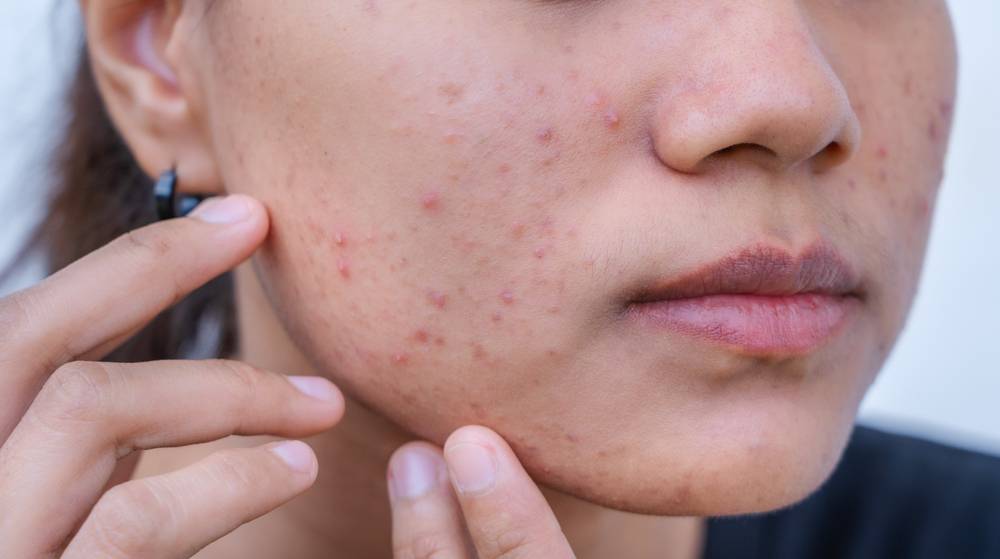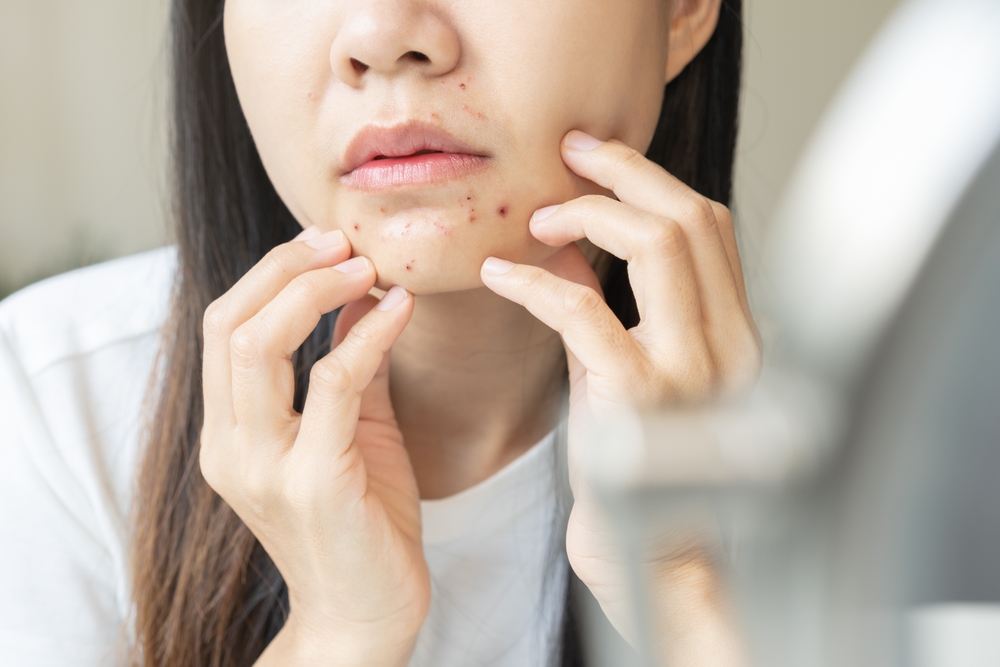Do you often get unexpected breakouts – and they just happen to conveniently occur right before an important exam, meeting or event? Stress acne might be the culprit.
As a pesky skin condition triggered by, you guessed it, stress, stress acne is a common yet misunderstood problem for many. But how does it differ from its hormonal counterpart, and how can you keep your skin clear during tumultuous times?
How Stress Causes Acne
Breakouts often coincide with a trying period in your life because there is a connection.
Comment
byu/curxxx from discussion
inSkincareAddiction
However, what should be noted is that the stress itself does not directly cause acne. What it does do is aggravate the problem, especially if you already have acne or are prone to breakouts.
Stress can compromise our skin’s ability to regulate and maintain balance in many ways. When we are stressed, our bodies release hormones like cortisol, which can increase oil production in the skin. This excess oil can clog up your pores, resulting in acne breakouts.
Furthermore, stress can negatively affect your immune system, making it harder for the body to fight off acne-causing bacteria. It can also exacerbate inflammation, causing the existing condition to get worse.
Stress Acne vs Hormonal Acne
While stress acne and hormonal acne can seem similar, they do have properties that make them distinct from each other.
Triggers
Stress acne is primarily exacerbated by stress and the associated hormonal changes that occur during these periods of stress.
This is in contrast to hormonal acne, which occurs as a result of shifts in hormone levels, during puberty, pregnancy, menstruation and menopause conditions.
Breakout Duration
In stress acne, the breakout is related to a worrying event, which means that it can resolve quickly once the stress subsides.
It is different from hormonal acne, which can persist for a longer period due to ongoing hormonal imbalances.
Appearance of Acne

Stress acne tends to emerge as smaller pimples, and can appear around the mouth and on the forehead and chin, whereas hormonal acne can show up along the chin and jawline as painful cysts that lie deeper under the skin.
Since these two types of breakouts have individual characteristics, they need to be treated differently as well. When you can distinguish between the two conditions, you can be confident in tailoring your skincare approach accordingly.
Managing Stress Acne
Ultimately, stress acne is the physical manifestation of our mental wellbeing. Turmoil and stressors are normal features of everyday living, meaning that it’s not possible to completely eliminate it from our lives.
However, there are still measures we can take to manage stress acne effectively.
Maintain a Healthy Lifestyle
Finding healthy coping mechanisms is important in alleviating stress. Activities such as exercise and meditation can go a long way in helping you maintain emotional wellness, easing the mental and physical effects of stress on your skin.
Processed and sugary foods can also aggravate inflammation and acne. So, a well-balanced diet filled with fruits and vegetables and plenty of hydration is crucial to promoting overall skin health.
In addition, getting sufficient sleep can help reduce stress levels and, in turn, help assuage breakouts.
Practise Good Skincare Habits
It is recommended to use mild cleansers, and to avoid washing your face more than two times a day to prevent your skin from being irritated. Try not to touch your face, especially any pimples, to prevent the transfer of dirt and germs.
Change your towels and pillowcases regularly, as bacteria can build up over the surface and come into contact with your face.
A consistent skincare routine can also do wonders, especially if it is adapted to acne-prone skin.
Talk It Out
Worrying over an issue on your own can worsen your mental state, and thus the condition of your skin. Discussing your problems with someone you are close to can help you withstand a difficult period a little easier.
If stress acne becomes severe or difficult to manage, you can also consider consulting a healthcare professional for treatment. Professional support, whether through a therapist or dermatologist, can also help you manage your skin condition.
Stress acne is a striking reminder of the strong connection between your mental health and physical wellbeing. The next time blemishes appear, don’t be too hard on yourself. Be mindful about taking proactive steps to support both your skin and your mental wellbeing, and you can reap the benefits of a clearer complexion and a healthier mindset.

